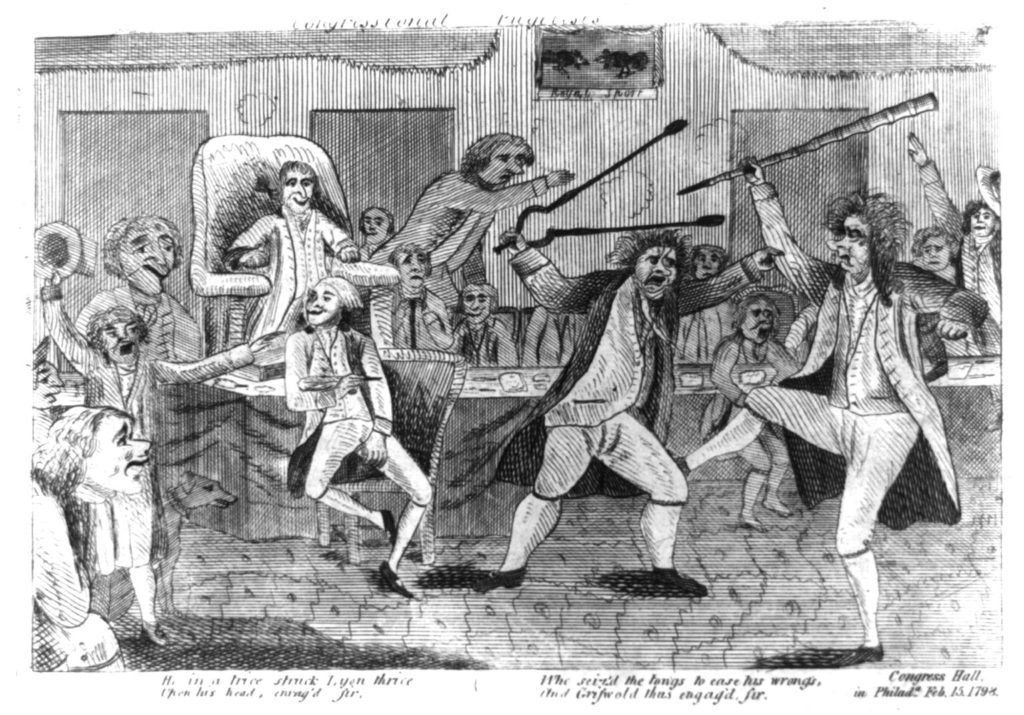When it comes to history, there are a lot of reliable web resources curated by historians, archivists, and editors. It is truly an embarrassment of riches. Stepping away from Franco-American history for a few weeks, I take this opportunity to share some sites I have especially enjoyed visiting over the years, either out of sheer curiosity and historical interest, or for actual research. Please feel free to share your own favorites in the comment section.

To an extent, as a society, we are what we buy—which makes this website such a fascinating glimpse into our past. The premise is simple: “What was advertised in a colonial American newspaper 250 years ago today?” The blog-style posts typically include the image of an ad and a short interpretive piece that also provides context. The whole website offers a glimpse into the concerns of the short period between the Seven Years’ War and the Revolutionary War. Brass, beer, beaver hats… it’s all in there.
Most significantly of all: The team behind the website (based at Assumption College in Massachusetts) also run a series on slave advertisements. The purpose is to show the extent of the slave trade (North and South), honor those who suffered in its shackles, and provide a sense of the terms on which slavery could exist in the colonies.
This collection spans a century of American history, from the Revolutionary War to 1875. It includes the legislative records and debates of the Continental Congress and U.S. Congress—a formidable resource. I found it particularly useful, and generally user-friendly, when researching antebellum petitions for military pensions, crucial to my work on French Canadians in the War of Independence. I also delved in when developing my article on the Patriot War. But this is not merely of value for those interested in political history: the contents are as varied as the fields of government activity, and popular preoccupations, have been.
The series holds a great many iconic moments in U.S. history, from the motion to expel Vermont congressman Matthew Lyon (“for riotous and disorderly behaviour”) to Lincoln’s Spot Resolution, and likely has yet to unveil all of its many gems.

To commemorate the U.S. Civil War and recognize recent historical scholarship on the subject, the New York Times launched this five-year series of articles in 2010. The pieces appeared exactly 150 years after the events they covered, such that readers could replay the war in real time—with the benefit of historical hindsight. Just in the first six months of the series, “Disunion” included contributions from such renowned historians as David Blight, David Eltis and David Richardson, Steven Hahn, Sven Beckert and Seth Rockman, and Ed Ayers.
I have assigned some of these articles, which are usually more digestible than other scholarly publications, in my classes. They are as a rule short, lively, and self-standing, i.e. typically you need not have read all of the preceding ones, although you might be sent down a lengthy digital rabbit hole.
On a related subject, Lincoln Mullen’s maps on the advances of slavery from 1790 to 1860 are truly impressive work and a great teaching tool.
Watch history as it happened. This is a great starting point for accessing media events from the last seventy or eighty years. I recommend it to teachers who need to spice things up, or to help students view the first draft of history. Many are either conversation starters or potential grounds for discussion and debate. Although at first glimpse the videos may all seem to depict recent events, there are a number of pieces from the 1940s, 1950s, and 1960s e.g. these ones on the Second World War and civil unrest. The “Search” function and “Playlists” button are probably the best way of approaching whatever one’s subject of interest may be.
A close cousin is the British Movietone archive, which holds similar videos—sometimes in all of their censored or sanitized glory.
This is largely one-stop shopping for U.S. history. The podcast also happens to be hosted by outstanding historians—Ed Ayers, Brian Balogh, Joanne Freeman, and Nathan Connolly—who have made academic history and the cutting edge of research accessible to a wider public. The topics are varied (e.g. “The History of Wellness in America”; “A History of the Beach”; “UFOs in American History”) and so is each episode, which typically includes stories ranging from colonial times to the recent past. The hosts’ easy-going style and guests’ lively storytelling are especially attractive, in the vast landscape of history-themed podcasts.

An honorable mention among podcasts goes to Liz Covart’s Ben Franklin’s World, which has really wonderful interviews with published scholars about all imaginable facets of American life from early colonial days to the Early Republic.
Bonus!
Recommended Textbook: The American Yawp
I used this textbook for the first time in a classroom setting with my high schoolers last spring. It is quite matter-of-factly, by which I mean we see little historiographical debate. Then again, to their credit, the authors have together proven dispassionate. If a bit dry, the chapters are an excellent reference source developed by reputable scholars and teachers. Also check out the primary source reader, a fairly extensive sampling of texts and visual documents from centuries of American history.
Recommended Blog: The Junto
Focused as it is on early American history, this site pairs well with Ben Franklin’s World. Posts include novel research, book reviews, roundtables, interviews, and series on specific aspects of U.S. history—such as this recent one on food and hunger. It is a wide-ranging blog featuring the latest “sexy” areas of research.
Next week: Canadian History Resources
Leave a Reply